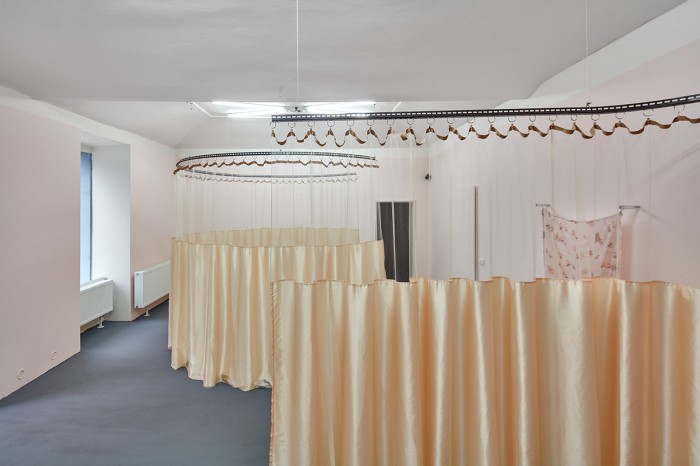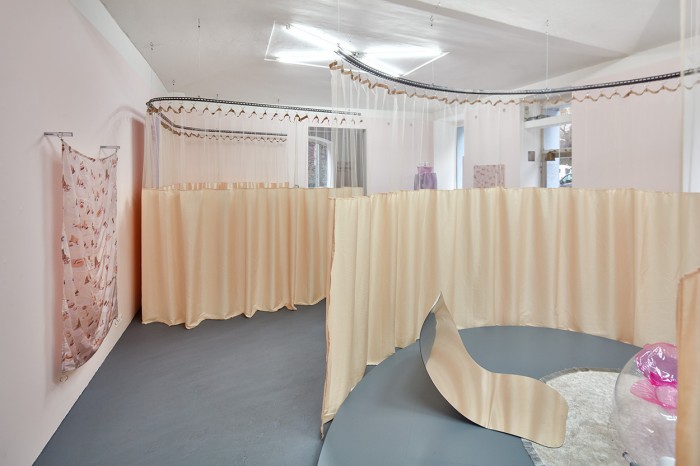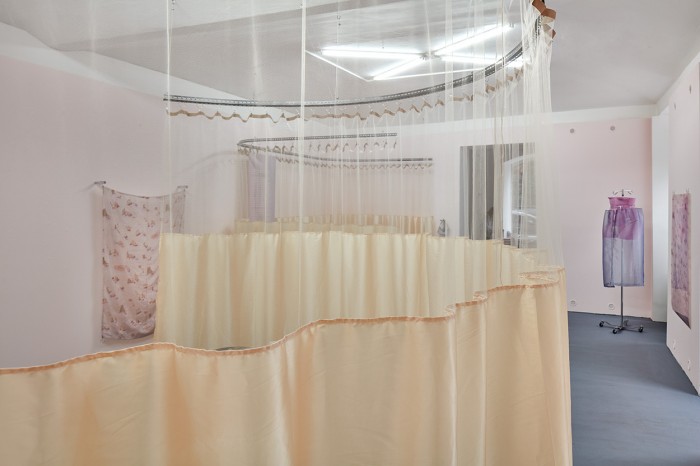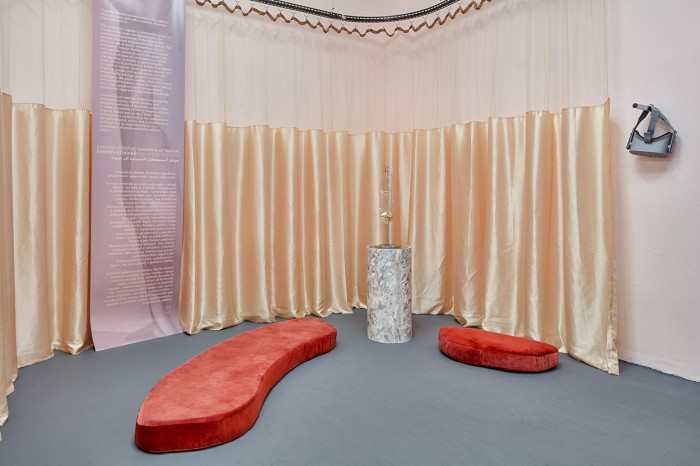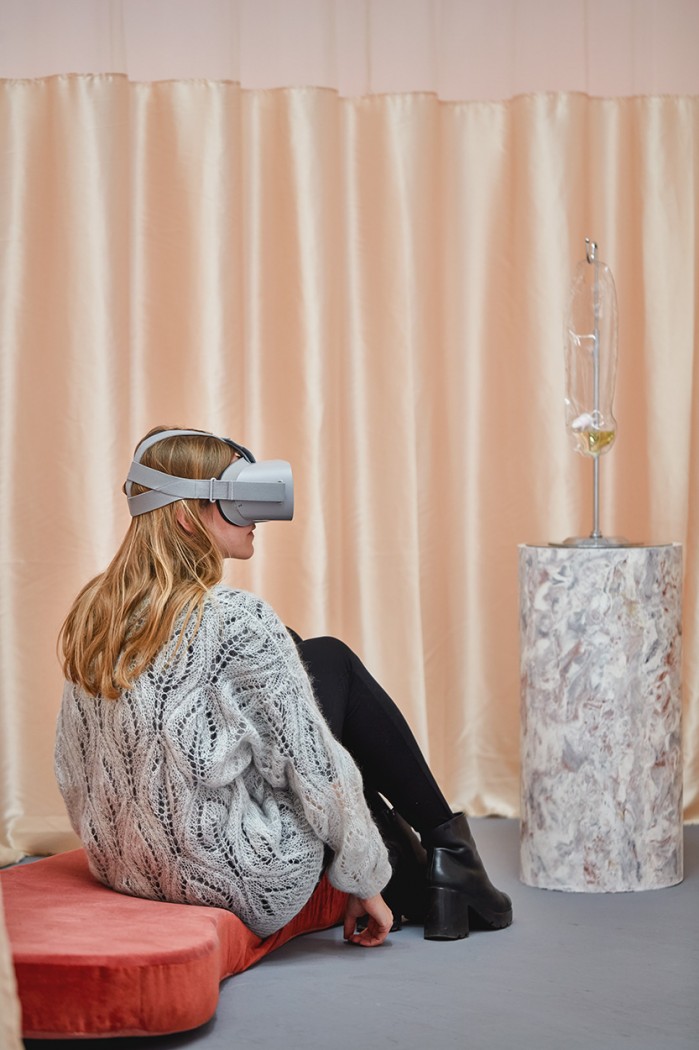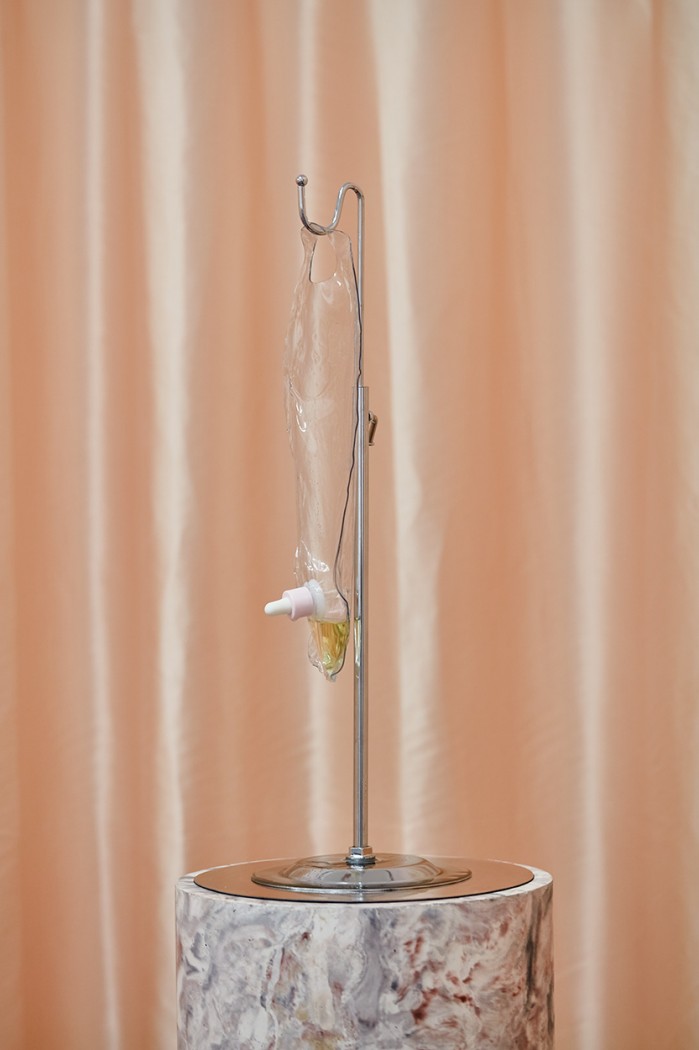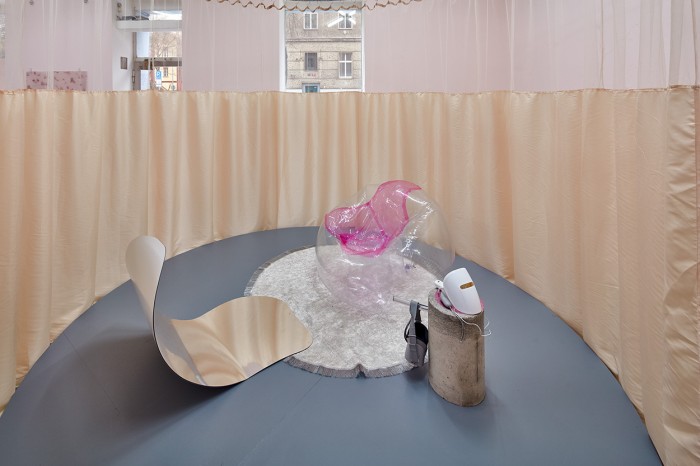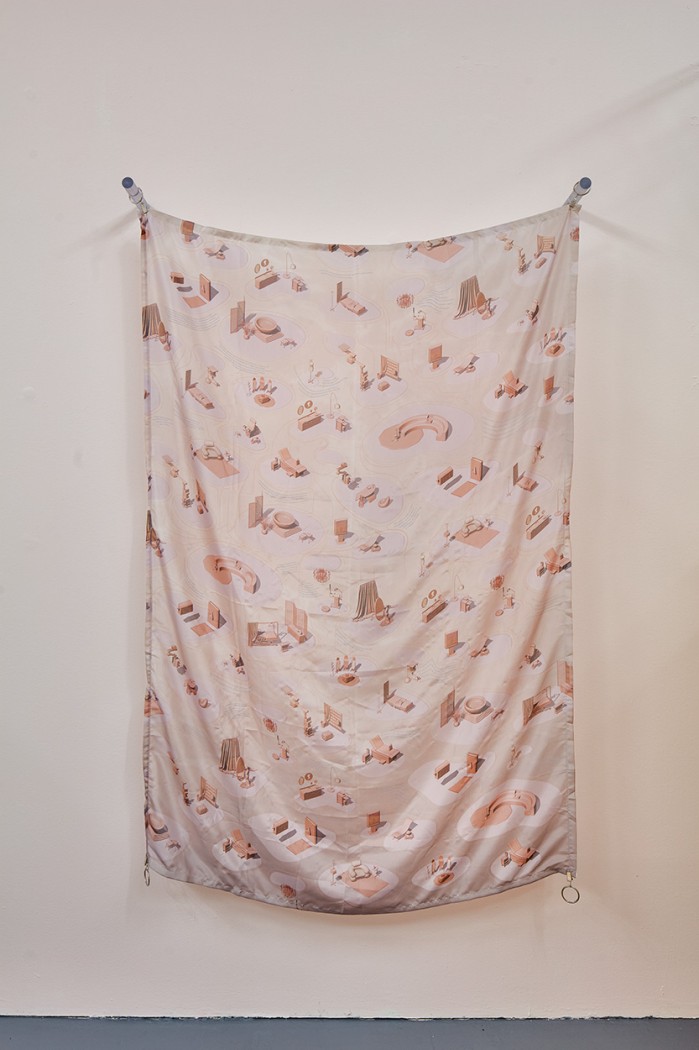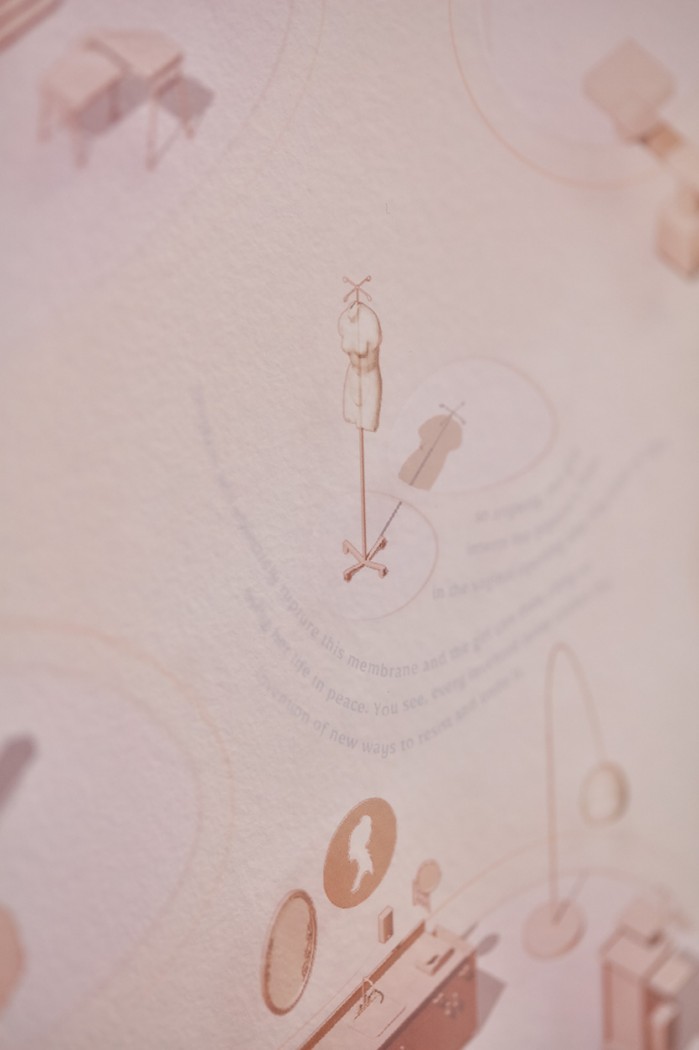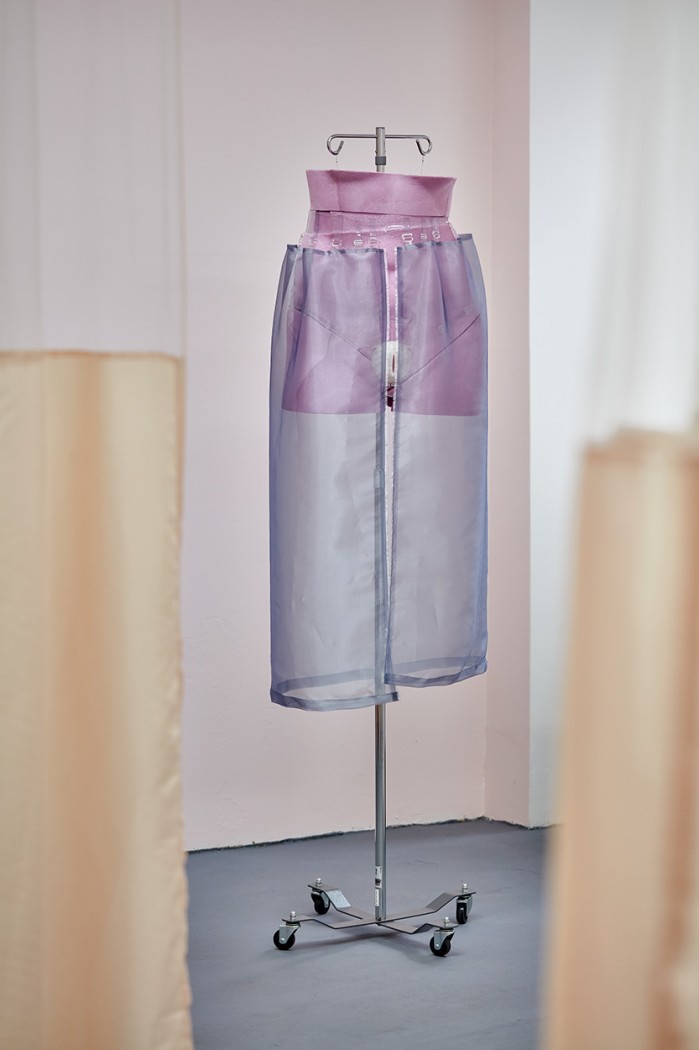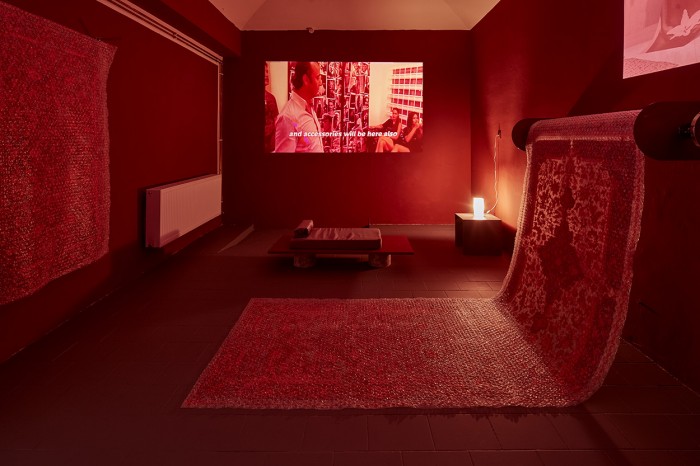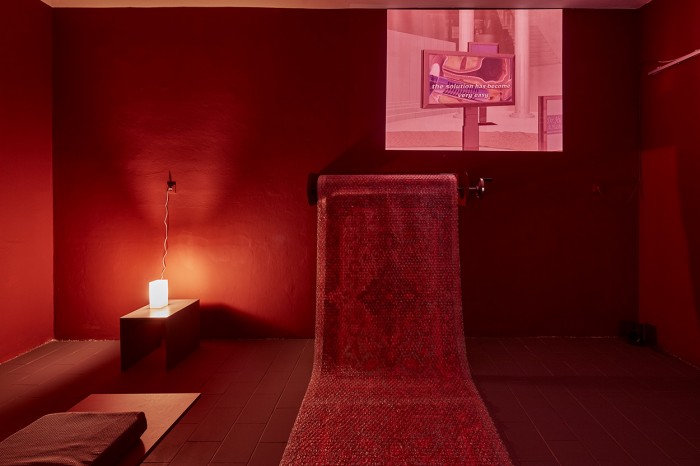f-architecture: Cosmo-Clinical Interiors of Beirut
{~ '2018-11-23 00:00:00' | amDateFormat: 'D/M' ~}–{~ '2019-01-19 00:00:00' | amDateFormat: 'D/M/Y' ~}

Virginity remains consequential to the agency, empowerment, and self-possession of women around the world. The concept of virginity is constructed not just at the site of the body, but also in multiscalar architectural operations, in the spaces that mediate between subjects and their desires. The clinic is a site of bodily reinvention and also production. Interior finishes, collateral objects, and aesthetic protocols aid in the spatial and cultural production of contemporary virginity and sexuality, available in new commodity forms. Beirut in particular—a Middle East capital for medical tourism, Arab soap-star beauty, and lingering gender and sexual norms—is a site whose bodily indulgences and corrections converge in the plastic surgery clinic. This virtual and physical exhibition mines the interior spaces and urban appearances of hymenoplastic architecture observed in Beirut but broadly felt.
The landscape of commodified virginity is comprised of connected, masked interiors: a set of medi-cosmetic and vaginoplastic practices, which are purposefully concealed by an assembly of innocuous, every-day building envelopes, secured VPNs, discrete packages, and informal networks of designers, manufacturers, distributors, clinicians, patients/consumers and sometimes even the families of dis/honorable women. Visualizing the spaces of these exchanges—of social capital, self-preservation, and power—illustrates how bodily ideals are operationalized within otherwise abstract registers: among the economic, regulatory, social and familial structures that govern proper relationships between bodies, often a relationship that serves men’s desire at the expense of women’s needs.
Cosmo-Clinical Interiors of Beirut examines the constructed space, interior finishes, and designed protocols of the plastic surgery clinic to make perceptible its role in shaping subjects, virginity culture and an ideal body. Here, architecture is understood as the confluence of the technological, social, and economic—not a built fact, but an organizing force in a constellation of produced and productive objects.
feminist architecture collaborative is a three-woman architectural research enterprise aimed at disentangling the contemporary spatial politics of bodies, intimately and globally. Their projects traverse theoretical and activist registers to locate new forms of architectural work through critical relationships with collaborators across continents and an expanding definition of Designer. Cosmo-Clinical Interiors of Beirut is part of a far-reaching research effort into the designed cultures and economies of virginity which began during f-architecture’s tenure at the GSAPP Incubator at NEW INC, an initiative of the New Museum of Contemporary Art in New York. Gabrielle Printz, Virginia Black, and Rosana Elkhatib maintain their wily practice and their deep friendship in Brooklyn, New York.
Exhibition views: Peter Fabo
Reviews:
Karolína Vránková, Aktivismus v architektuře: feminismus, Degustace designu, Radio 1, 14. 1. 2019 (Czech only).
Annette Lin, f-architecture and the Hymen Industrial Complex, pinupmagazine.org.
